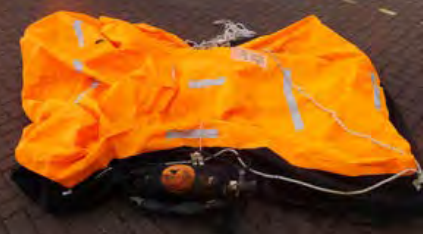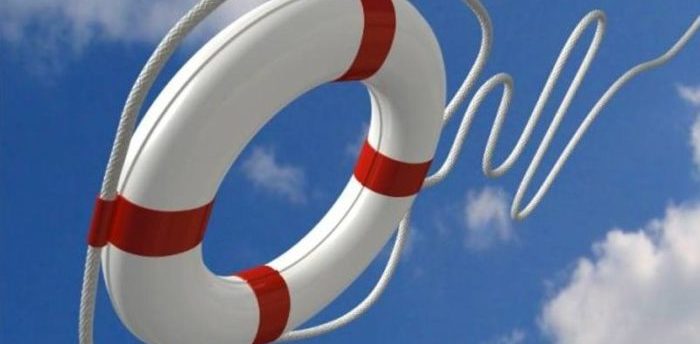In the latest Safety Digest, the UK MAIB published a maritime incident, according to which a skipper and its fellow crew decided to anchore after many days of fishing. Yet, the vessel started sinking rapidly. A possible factor that caused the incident is fatigue, as all members of the vessel worked long hours.
Specifically, after days of fishing, a skipper decided to anchor overnight, in order for the crew to rest. Thus, the skipper anchored the vessel in a sheltered bay close to a beach. Once at anchor, the crew hosed down the working deck and ate a meal before going to bed.
In the early hours of the morning, all four fishermen were woken as the boat was sinking rapidly by the bow. In light of this event, the skipper and the crew managed to escape out of the accommodation area and don foam-filled lifejackets.

After that, they activated the EPIRB and made preparations to launch the lifereaft; Yet, the latter would not inflate. To give the liferaft some buoyancy, the crew put fishing marker buoys inside the canopy before lowering it into the water.
The skipper and crew entered the water and attempted to support themselves on the uninflated liferaft. One of the crew managed to survive by swimming to the shore, but tragically none of the other three crew survived.
Lessons Learned
- With crew on board and no one on watch, vessels must be in a safe condition. This accident was caused by the deck wash hose being left running, leading to flooding in the forward hold. Robust routines that ensure all equipment and machinery is in a safe state should be in place, especially when everyone is asleep.
- Audible alarms are vital to alert crew to danger. In this case, the audible bilge alarm had been disabled by the crew. This meant that they had no warning of the unfolding events and potentially missed an opportunity to stem the flood.
- Fatigue is a common precondition in accidents. The crew of this vessel had been working excessive hours and were all completely exhausted. The skipper’s decision to anchor overnight so everyone could get some rest was sensible, but better working practices could potentially have ensured that they were not exhausted in the first place.
- The liferaft was out of date for service and, although the EPIRB had been activated, it took time for rescue services to reach the scene. This tragic accident demonstrates that the focus of fishing vessel owners, skippers and crews must be to operate safely and avoid the need to abandon ship. However, it is still critical that all lifesaving appliances are fully functional, in date for service and ready for immediate use if abandoning ship is the only option.































































